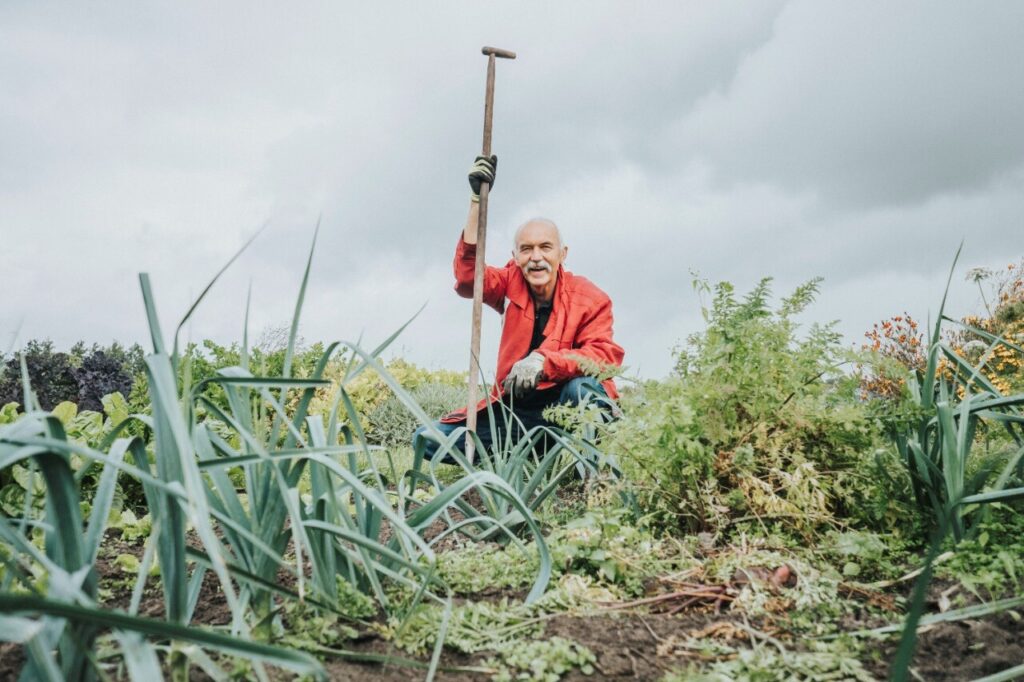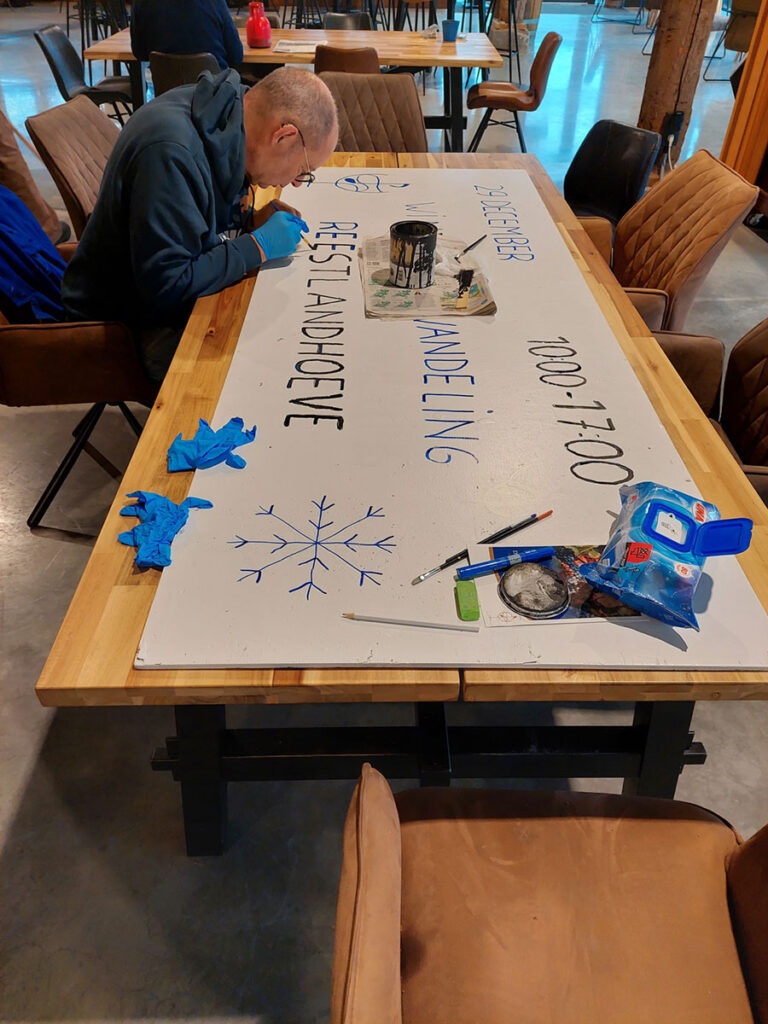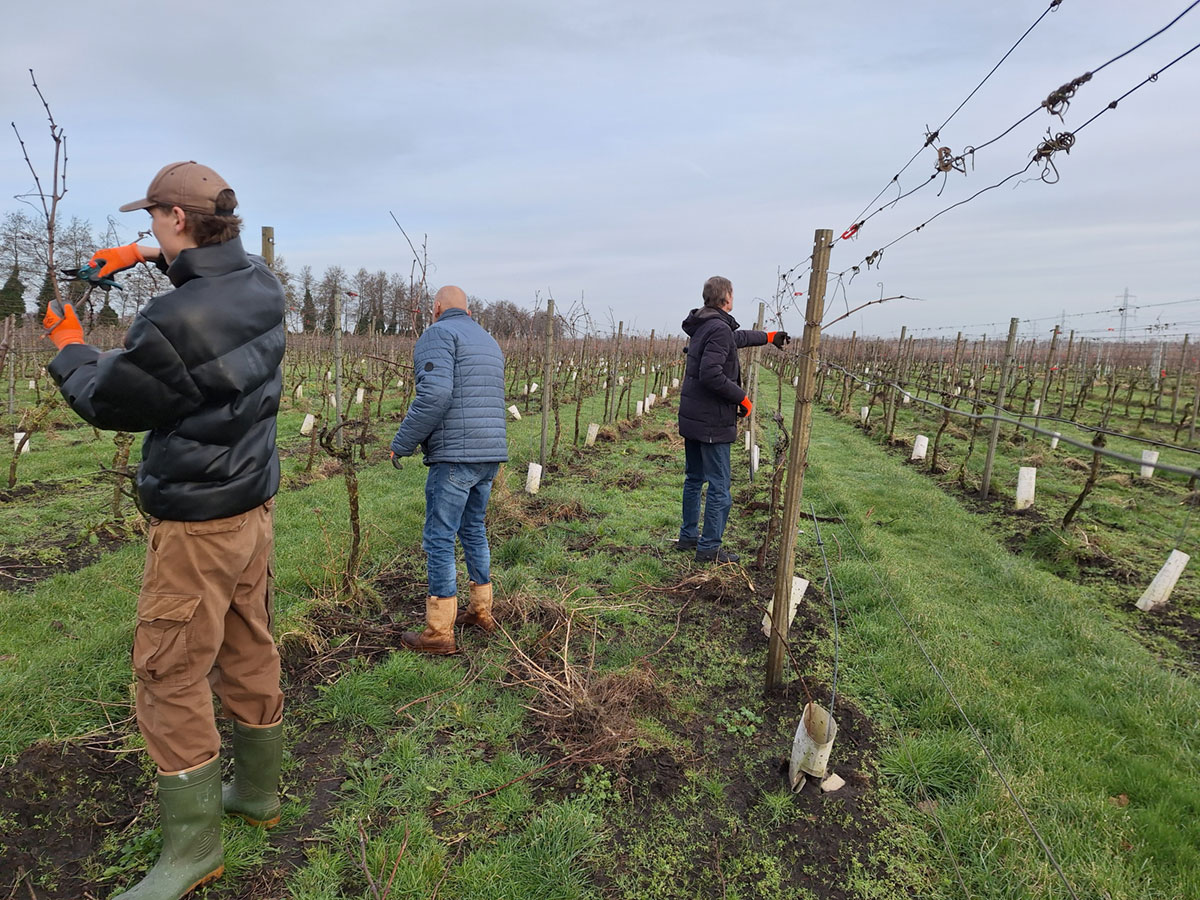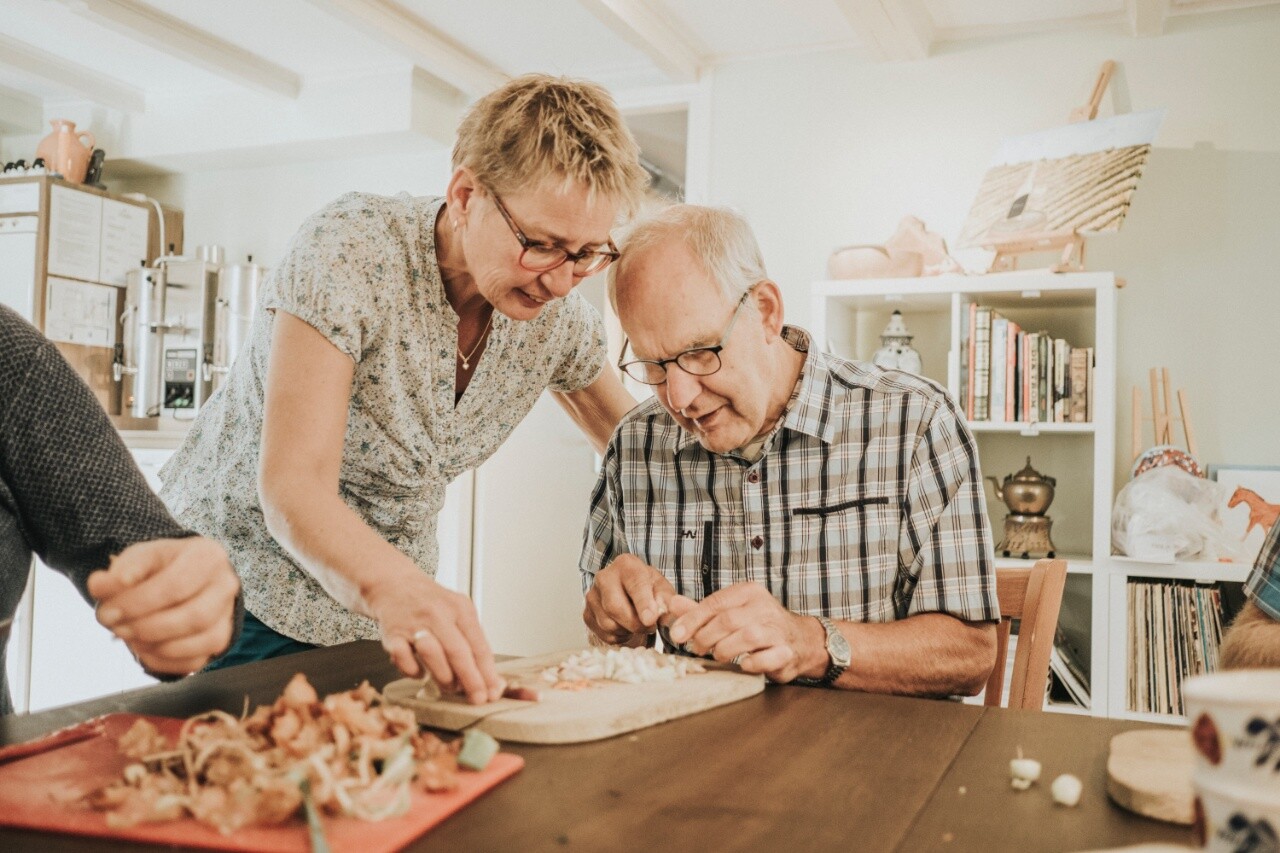With dementia, NAH and other psychiatric problems, there is a lot of focus on the limitations
What can no longer be done and what problems does this entail
We often look at people with a mental health issue such as NAH, dementia or a problem on the autistic spectrum in terms of what is no longer possible. People with these problems become insecure. Self-confidence declines, staying socially active becomes more difficult, resulting in a rapid decline in quality of life.

Working with possibilities as a starting point
The person is always at the center of attention
What can still be done? It is a normal human need to want to contribute to society. Helping other people gives you self-confidence and the feeling that you matter. In doing so, you also help yourself. That improves the quality of life.
At Reestlandhoeve Care, we search together for opportunities within the personal environment of the participants
At the Reestlandhoeve we use the Böhm guidance method, a guidance method that connects to the individual experience. We translate this into appropriate activities within our day care. We involve people in various chores. There is also plenty of room for relaxation and creative activities. People experience an active and meaningful day with us, in which self-reliance is stimulated. This strengthens self-esteem and sense of purpose.
We call it supported volunteering
Our clients are involved in various chores
We offer small-scale day care, if necessary combined with individual and ambulatory guidance. The day care is set up as supervised volunteering, because many people at the Reestlandhoeve have an aversion to the word day care. One of our “supervised volunteers” expressed this as follows: “I should be encouraged but not outsourced.” For many people it is a barrier to go to day care. We focus on appropriate daytime activities, even in more complex situations when, for example, there is a motivation problem. But we often see these problems quickly fade into the background because someone feels useful and valued.

Focused on people and society
There is room for different issues and diverse ages
At Reestlandhoeve Care, we focus on people, not on a specific target group. There is room for people with different problems and different ages. We do this consciously because a mix of people; young and old, with and without care needs, makes society complete. We learn from each other and help each other. Problems we at the Reestlandhoeve have to deal with a lot:
- Various forms of dementia in which the Reestlandhoeve is also very suitable for young people with dementia.
- Psychiatric problems, whether or not combined with mild intellectual disabilities.
- Problems on the autistic spectrum.
- Parkinson’s
- A mental health concern.
- Non-congenital brain injury (NAH).
Our care team consists of professionals with extensive experience in various fields of health care: social psychiatry, multicultural care, dementia care, community-based care and intellectual disability. Together, we are committed to achieving an enjoyable, meaningful day for all attendees. If the problem you are dealing with is not listed but you think the Reestlandhoeve is an option, please do not hesitate to contact us. If the problem requires a very specific approach but someone does feel at home at the Reestlandhoeve, we seek cooperation with specialists to provide the right guidance.
Contra indications:
– People with severe alcohol problems for whom the presence of Reestlander wines is too much of a burden. – Aggressive behavior that cannot be regulated, making other participants feel unsafe. – Consistent walking away from the premises.
Individual counseling can be helpful
Search for connection to real needs
At the Reestlandhoeve, it’s not just about activities and being kept busy. The trick is to connect to the real need and finding new or renewed life goals. Individual guidance can be helpful in this. In situations where growth and progress is possible, we encourage it to explore and push boundaries. Daily practice shows that this can lead to more independence whereby guidance is eventually only needed from a distance or even becomes unnecessary. Even with progressive conditions such as dementia in which physical and cognitive abilities become less and less, individual guidance is sometimes helpful. If it is not possible (any longer) to do an activity together in a (small) group, we can arrange a certain time so that there is room to do something together one on one. This way we keep people activated and they continue to participate. This has a positive effect on overall functioning.
The Gastery, experiential day care
At the Reestlandhoeve, we do not specifically target any particular audience. Yet we make one exception on Wednesdays. Then we rename Reestlandhoeve Care to Gasterij. This is experiential day care for people with memory problems and especially suitable for people who love the good life. Mostly broad-minded people, highly educated and seen a lot of the world. And now they are dealing with memory problems.
At the Gasterij the emphasis is not on work but on the pleasures of life. In addition to coffee and tea with delicacies, a hot meal together and, of course, a glass of wine for the enthusiast, we make it a pleasant day. The day is filled with pleasant conversation and relaxing activities, mostly in groups, but there is also the opportunity to read the newspaper by yourself.
Trial period
Find out if the Reestlandhoeve fits
It is important that the interpretation of the day matches the interests and qualities of the participants. Having a click with the Reestlandhoeve and the various activities is relevant. Not only for new participants but also for the functioning of the group.
This is not always easy to estimate in advance. Therefore, we start with a trial period of 2 months, so there is time to get acquainted and get used to the situation. If after 2 months there appears to be no click and there is no prospect of improvement of the situation, we advise to look for another interpretation. If necessary, the Reestlandhoeve will advise this.






